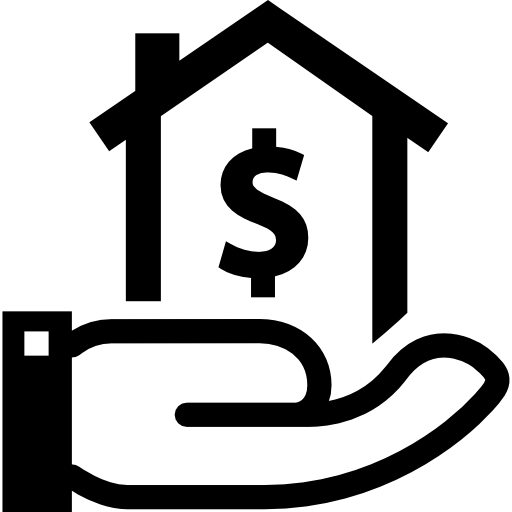The short answer is yes; you can sell your house when facing bankruptcy. You’re one of many American citizens who find themselves in this predicament. It’s a big decision that comes with its own set of challenges and considerations.
We’ll break down everything you need to know about selling your house during Chapter 13 bankruptcy, including the rules, processes, and potential outcomes.
Key Summary
- Chapter 13 Bankruptcy allows you to create a repayment plan over 3–5 years without liquidating your assets.
- Approval from the trustee overseeing your bankruptcy case is necessary before selling your house.
- Selling your house as-is for cash can provide an easy and convenient solution.
- Proceeds from the sale may be used to repay creditors, with the distribution based on priority and applicable exemptions.
- Professional appraisals may be necessary to determine fair market value of disputed assets like the marital home.
- Consider things like credit scores, waiting periods for new mortgages, and financial planning after selling your house.
Bankruptcy Basics
Bankruptcy allows you to manage overwhelming debts and get a fresh start financially. There are two common types of bankruptcy, each serving different purposes and catering to various financial situations:
Chapter 7 Bankruptcy: Liquidation
It’s often called “straight” bankruptcy because it wipes out most unsecured debts, such as credit card debt and medical bills, allowing you to start anew relatively quickly. Chapter 7 bankruptcy involves the liquidation of assets to pay off creditors.
However, not all assets are liquidated in Chapter 7. Certain assets, such as a primary residence, vehicle, or household goods, may be exempt from liquidation under federal or state law.
Chapter 13 Bankruptcy: Repayment Plan
Chapter 13 bankruptcy, also known as a wage earner’s plan, allows individuals with regular income to create a repayment plan to pay off all or part of their debts over a period of 3–5 years.
Unlike Chapter 7, it doesn’t involve liquidating assets. Instead, individuals can keep their property and assets while adhering to the court-approved repayment plan.
Recent Chapter 13 bankruptcy filings in the US:
| Year | Chapter 13 Bankruptcy Filings (Total) | Chapter 13 Bankruptcy Rate (per 100,000 people) |
|---|---|---|
| 2020 | 149,072 | 45.4 |
| 2019 | 155,227 | 47.4 |
| 2018 | 142,540 | 43.4 |
| 2017 | 134,975 | 41.1 |
| 2016 | 126,591 | 38.6 |
Selling a House During Bankruptcy: Legal Considerations and Restrictions
When you’re facing financial challenges and considering selling your house during bankruptcy, it’s crucial to understand the legal considerations and restrictions involved in the process. Here’s what you need to know:
Legal Considerations and Restrictions
Although it’s possible to sell your house during bankruptcy, there are several legal considerations and restrictions to be aware of:
- Approval from the trustee overseeing your bankruptcy case is essential before you can sell your house. They’re like the referee, making sure everything’s fair.
- You must follow the rules set by your state and the federal government. These rules ensure everything’s done legally.
- Depending on your bankruptcy situation, the money you get from selling your house might have to be shared with your creditors.
- If you’re selling your house for more than what you bought it for (making a profit), you might have to pay taxes on that money. However, certain exceptions exist, especially if it’s your main home.
- Selling your house during bankruptcy can also affect any existing mortgage you have on the property. You’ll need to work with your bank to ensure everything’s in order.
Impact on Your Bankruptcy Plan
Your bankruptcy plan is based on your income, expenses, and assets, including your home. Selling your house could change your financial situation, affecting your ability to make payments according to the plan.
The trustee will carefully assess how the sale will affect your ability to fulfill your obligations under the bankruptcy plan.
Equity and Exemptions
Equity refers to the value of your home minus any outstanding mortgage debt. In bankruptcy, certain exemptions protect a portion of your equity from creditors. Understanding equity and exemptions is vital when considering selling your house during Chapter 13 bankruptcy.
- Homestead Exemption: This allows you to protect a certain amount of equity in your primary residence from being seized by creditors during bankruptcy.
- Personal Property Exemption: This covers furniture, clothing, and other personal belongings, protecting them from being taken to pay off debts.
- Wildcard Exemption: This lets you protect a specific dollar amount of any property you own, giving you flexibility in safeguarding assets beyond what other exemptions cover.
Impact on Creditors
When you sell your house during bankruptcy, the proceeds from the sale may be used to repay your creditors. However, the distribution of proceeds will depend on the priority of creditors, the amount of equity in the house, and any applicable exemptions.
The trustee will ensure that the sale proceeds are distributed according to the rules outlined in the bankruptcy code.
Impact on Creditors
When you sell your house during bankruptcy, the proceeds from the sale may be used to repay your creditors. However, the distribution of proceeds will depend on the priority of creditors, the amount of equity in the house, and any applicable exemptions.
The trustee will ensure that the sale proceeds are distributed according to the rules outlined in the bankruptcy code.
Tax Implications
Generally, if you sell your house for more than what you originally paid for it (called a capital gains tax), you might owe taxes on that profit.
However, if you’re selling your primary residence and meet certain criteria, you may be eligible for a tax exclusion that allows you to keep some or all of the profit tax-free.
It’s important to understand these tax implications and consult a tax professional to ensure you’re prepared for any potential tax obligations when selling your house during bankruptcy.
Potential Obstacles
You may face obstacles, such as finding a buyer willing to purchase a house involved in bankruptcy proceedings. The sale process may take longer than usual due to the need for court approval and compliance with bankruptcy laws and procedures.
Consideration for Selling Your House

Selling your house while dealing with Chapter 13 bankruptcy isn’t as difficult as you might think. You have quite options before you reach the end of the road.
The Trustee's Approval
Before putting your house on the market, you’ll need approval from the trustee overseeing your case. They’ll review your situation to ensure that selling the house won’t disrupt your bankruptcy plan or negatively impact your creditors.
Selling Your House As-Is for Cash
One increasingly popular option for selling a house during Chapter 13 bankruptcy is to sell it as-is for cash. When you sell your house as-is for cash, you’re selling it in its current condition without needing repairs or renovations.
This option can be particularly appealing if you’re looking to move forward swiftly with your bankruptcy case or if your house requires significant repairs that you cannot afford. Here’s how it works and why it might be the right choice for you:
Speed
Selling your house for cash can be lightning-fast compared to traditional sales. With cash buyers, there’s no need to wait for mortgage approvals or deal with lengthy closing processes.
No Repairs Needed
Cash buyers typically purchase houses in their current condition, which means you don’t have to worry about making costly repairs or renovations before selling.
Certainty
Cash sales are more likely to close successfully since they’re not contingent on financing. This certainty can provide peace of mind, especially if you’re navigating a complex bankruptcy case.
Avoiding Foreclosure
Selling your house for cash can help you avoid foreclosure proceedings, which can have serious long-term consequences for your credit and financial future.
Other options to consider:
Traditional Sale
This involves listing your house on the market through a real estate agent and going through the typical selling process. While this option may take longer, it potentially allows you to get the best price for your home.
Short Sale
If you owe more on your mortgage than your house is worth, a short sale may be an option. In a short sale, the proceeds from the sale are less than the outstanding mortgage balance, and the lender agrees to accept the sale price as full satisfaction of the debt.
State-Specific Regulations

When it comes to bankruptcy, it’s not just federal laws you need to worry about. Each state may have its own set of regulations that can affect your bankruptcy case.
Let’s examine how state-specific regulations can impact Chapter 13 bankruptcy in Rhode Island and Massachusetts.
Rhode Island
In Rhode Island, Chapter 13 bankruptcy operates under federal law, but there are state-specific regulations and exemptions that you need to be aware of. Here are some key points:
Exemptions:
Rhode Island allows bankruptcy filers to use either federal bankruptcy exemptions or state-specific exemptions. Some common state exemptions include homestead, personal property, and wildcard exemptions.
The homestead exemption in Rhode Island allows individuals to protect a certain amount of equity in their primary residence from creditors. As of 2024, this exemption amount is $500,000 for a single person and $1,000,000 for a married couple filing together.
Median Income and Means Test:
You’ll need to pass a means test to determine your eligibility. This test compares your income to the median income in Rhode Island for households of similar size. You may qualify for Chapter 13 without further scrutiny if your income is below the median.
Massachusetts
Massachusetts follows federal bankruptcy laws but has its own set of rules and exemptions. Here’s what you need to know about Chapter 13 bankruptcy in Massachusetts:
Homestead Exemption:
Massachusetts offers a homestead exemption that allows individuals to protect a certain amount of equity in their primary residence from creditors.
As of 2024, the homestead exemption in Massachusetts is $500,000 for most homeowners, with additional protections for disabled individuals and elderly homeowners.
The exemption automatically protects up to $125,000 in home equity without filing.
Personal Property Exemptions:
Massachusetts provides exemptions for various types of personal property, including household goods, clothing, furniture, and tools of the trade. These exemptions allow individuals to retain essential assets necessary for daily living and work.
Median Income and Means Test:
Your income will be compared to the median income in Massachusetts for households of similar size. You may be eligible for Chapter 13 relief if your income falls below the median.
Consult a Bankruptcy Attorney

It’s essential to consult with a knowledgeable bankruptcy attorney who understands the laws in your state and can guide you through the process effectively.
By seeking legal advice, you can ensure that your bankruptcy case proceeds smoothly and maximizes the benefits available under federal and state law.
Post-Bankruptcy Sale Considerations
Once you’ve navigated through the bankruptcy process and sold your house, there are several important considerations to remember as you move forward with your financial journey.
Credit Scores
Bankruptcy can significantly impact your credit score, and it’s essential to understand how this may affect your ability to obtain credit in the future. Here are some key points to consider:
- Credit Score Impact: Bankruptcy typically remains on your credit report for seven to ten years, depending on the type of bankruptcy filed. Your credit score may be lower during this time, making qualifying for loans or credit cards more challenging.
- Rebuilding Credit: Despite the initial hit to your credit score, rebuilding it over time is possible. Making timely payments on any remaining debts, such as car loans or credit cards, can help improve your credit score gradually.
- Credit Monitoring: Consider enrolling in a credit monitoring service to keep track of your credit score and receive alerts for any changes or suspicious activity. Monitoring your credit can help you stay informed and take proactive steps to improve your financial health.
Waiting Period for New Mortgage
If you’re considering purchasing a new home after bankruptcy, there’s typically a waiting period before you can qualify for a new mortgage.
The waiting period varies depending on the type of bankruptcy filed and the type of loan you’re seeking:
You may be able to qualify for a mortgage sooner, as you’re actively repaying your debts through a court-approved repayment plan. Some lenders may consider your application one year after filing Chapter 13, provided you have made all plan payments on time.
Improve Your Financial Profile
During the waiting period, focus on improving your financial profile by maintaining stable employment, saving for a down payment, and demonstrating responsible financial habits.
When evaluating your mortgage application, lenders will consider factors such as income stability, debt-to-income ratio, and payment history.
Other Financial Implications
In addition to credit score and mortgage considerations, there are other financial implications to be aware of after selling your house post-bankruptcy:
Budgeting and Financial Planning
Take this opportunity to reassess your financial goals and create a realistic budget to effectively manage your income and expenses. Prioritize saving and emergency funds to build a strong financial foundation for the future.
Debt Management
Continue to monitor and manage any remaining debts carefully. Explore debt consolidation or negotiation options to reduce interest rates or settle outstanding balances.
Frequently Asked Questions
Can I sell my house to a family member or friend during bankruptcy?
Selling your house to a family member or friend during bankruptcy is possible, but it must be done at arm’s length and for fair market value to avoid scrutiny from the trustee and creditors.
What happens if my house doesn't sell during bankruptcy?
If your house doesn’t sell during bankruptcy, you may need to reassess your options with the guidance of your bankruptcy attorney and the trustee. This could involve amending your repayment plan or exploring other solutions.
Are there any alternatives to selling my house during bankruptcy?
Alternative options include loan modification, debt negotiation, or exploring other bankruptcy chapters depending on your financial situation and goals.
Conclusion
Selling your house during bankruptcy, including Chapter 13, may be possible, but it’s important to understand the legal considerations and restrictions involved. Consulting with a knowledgeable attorney can provide valuable guidance and assistance.
As you handle all the legalities in selling your home, you can get an instant offer from us in the meantime. We’ll buy your house as-is, giving you peace of mind during this challenging period.





